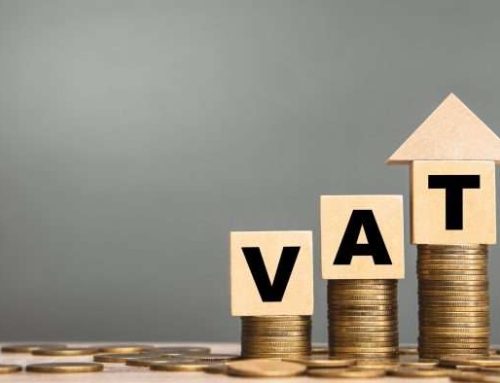UAE Clarifies Tax Rules for Real Estate Investors

The UAE’s Federal Tax Authority (FTA) has released a public clarification on Corporate Tax rules for investors in Real Estate Investment Trusts (REITs). If you’re a real estate investor or considering buying property in the UAE, this update is crucial.
With the new Corporate Tax law coming into effect in 2025, understanding these updates can help you make smarter, more profitable property investments.
What’s New in the UAE Corporate Tax for Real Estate?
Starting January 1, 2025, the UAE will apply new corporate tax rules for investors in REITs.
Here’s what you need to know in simple terms:
1. Investors will be taxed on 80% of REIT income – If you’re investing in a REIT that is exempt from corporate tax, you’ll still need to pay tax on 80% of the income from immovable property generated by the REIT.
2. Tax exemption if dividends are distributed – If the REIT distributes the income within nine months after the financial year and you’ve sold your shares before receiving any dividends, you won’t be taxed on that income.
3. Who does this apply to?
- UAE residents and non-resident investors
- Legal entities (companies, not individuals)
- Investors in qualifying REITs

Why This Matters for Real Estate Investors
This clarification brings transparency and confidence to the market. Here’s why it matters:
Clear Tax Framework
You now have a better idea of your tax obligations, helping you avoid penalties and plan your investment strategy wisely.
Transparency for Foreign Investors
For international buyers, this is a big plus. Knowing what your tax exposure is before investing makes the UAE more appealing.
Better Decision-Making
Whether you’re looking at long-term rental income or capital gains, this helps you forecast your net returns more accurately.
Key Tax Details for REIT Investors
Here are some of the important points highlighted by the FTA:
- Profit Distributions: Income from REITs is taxable unless dividends are distributed within the set timeframe.
- Expense Deductions: Investors can deduct certain expenses related to the investment.
- Taxable Events: Selling or transferring your investment may trigger a tax obligation.
- Fund Obligations: REITs must provide all necessary financial info to investors for tax filing.
- Non-Resident Support: Non-resident investors can appoint tax agents to help with their obligations.
Why It’s Still Great to Invest in UAE Real Estate
Despite the upcoming tax rules, UAE real estate remains one of the top markets for investors, especially in Dubai and Abu Dhabi.
High Rental Yields
UAE properties offer rental returns between 5%–8%, higher than many global cities.
Tax-Friendly Environment
Even with the new corporate tax, personal income remains tax-free. This is a huge plus for individual investors.
Booming Property Market
UAE cities like Dubai, Abu Dhabi, and Sharjah continue to see strong demand for residential and commercial properties.
Regulated & Stable
Clear tax policies build investor confidence and market transparency, which is great for long-term growth.
The UAE’s clarification on corporate tax for REIT investors is a step toward a more transparent and stable investment environment. While you may now face limited tax exposure, the country’s pro-business mindset, high returns, and resilient property market make it a smart place to invest.
If you’re planning to invest in the UAE real estate market, now is the time to consult a property expert, review your portfolio, and prepare for 2025.





